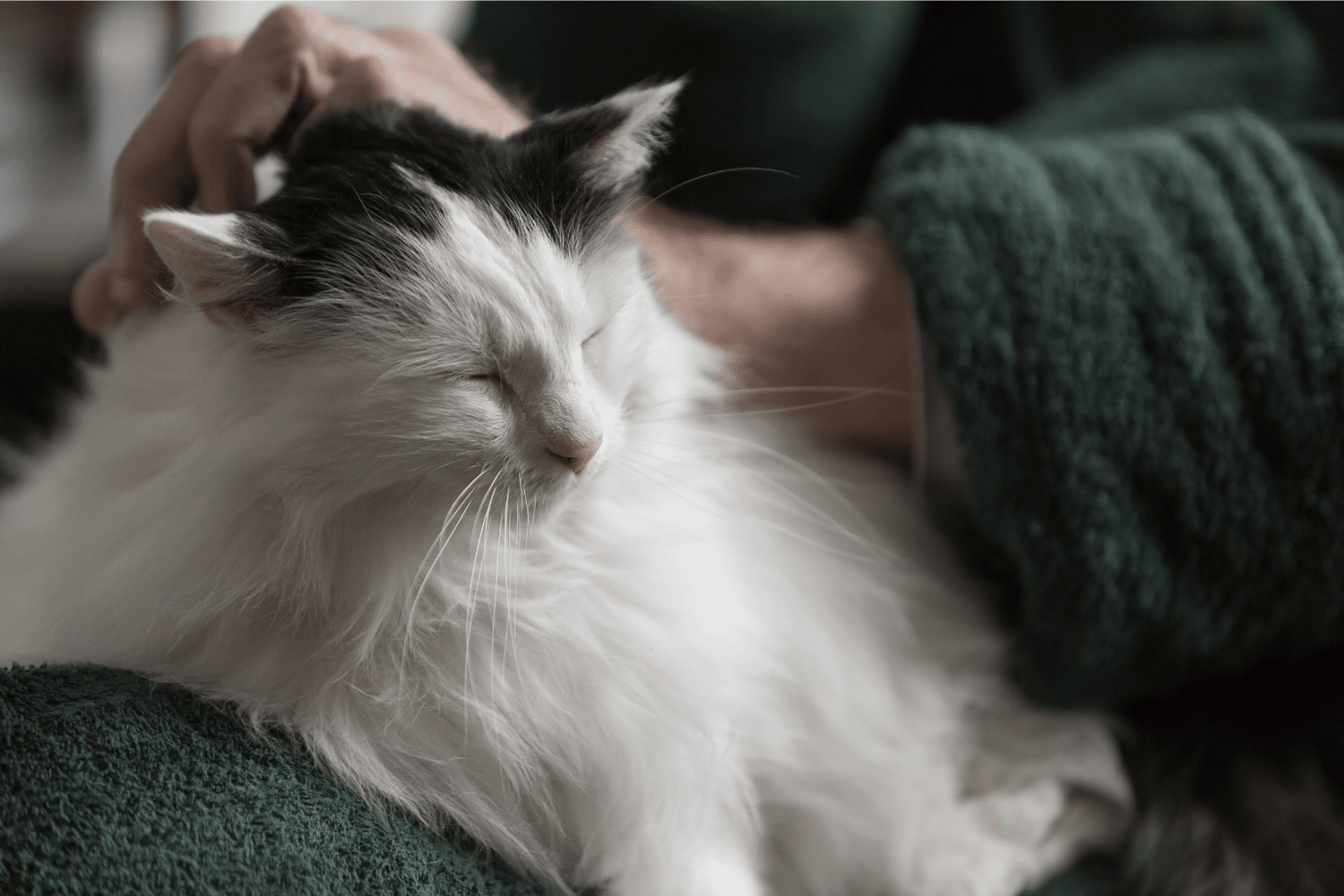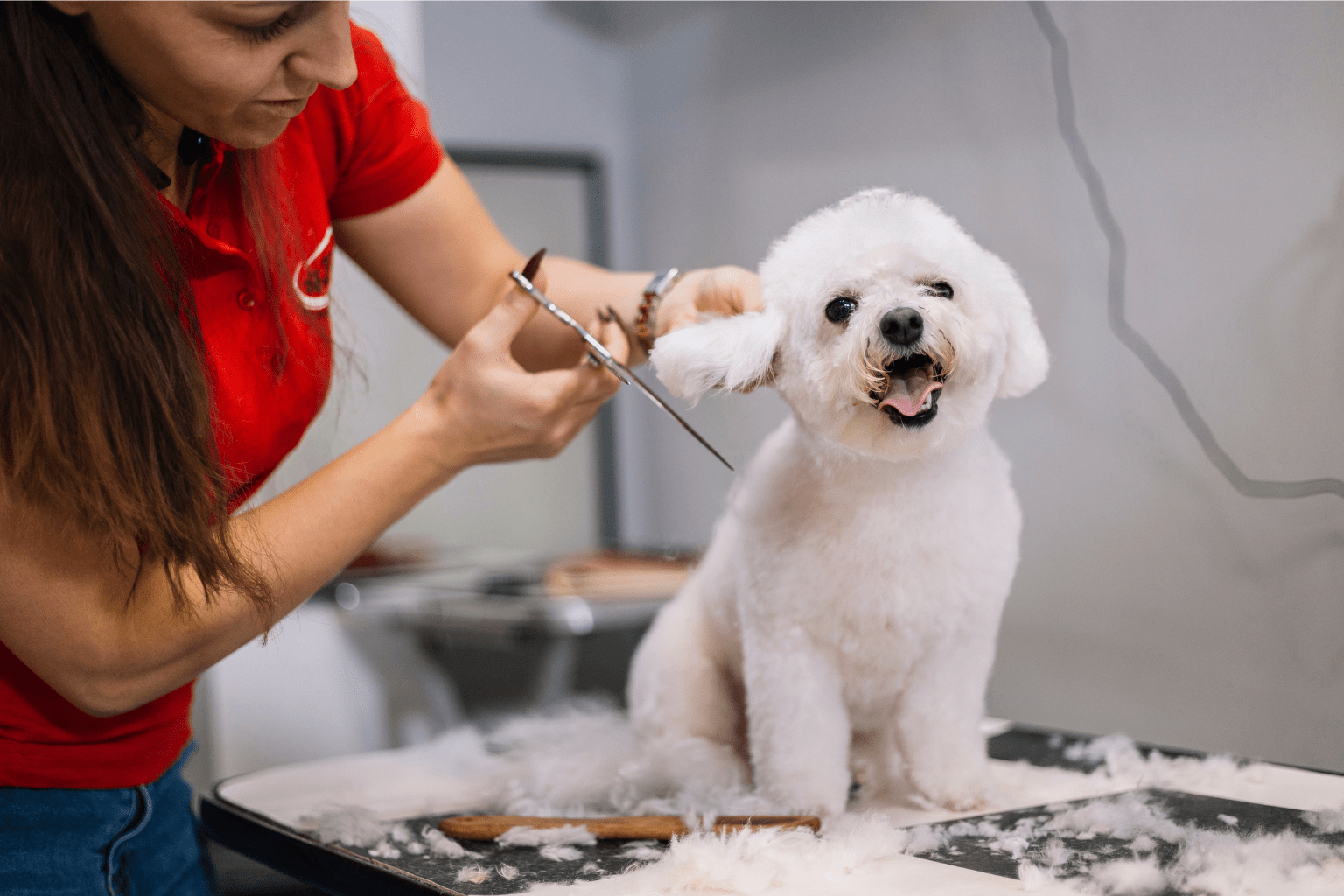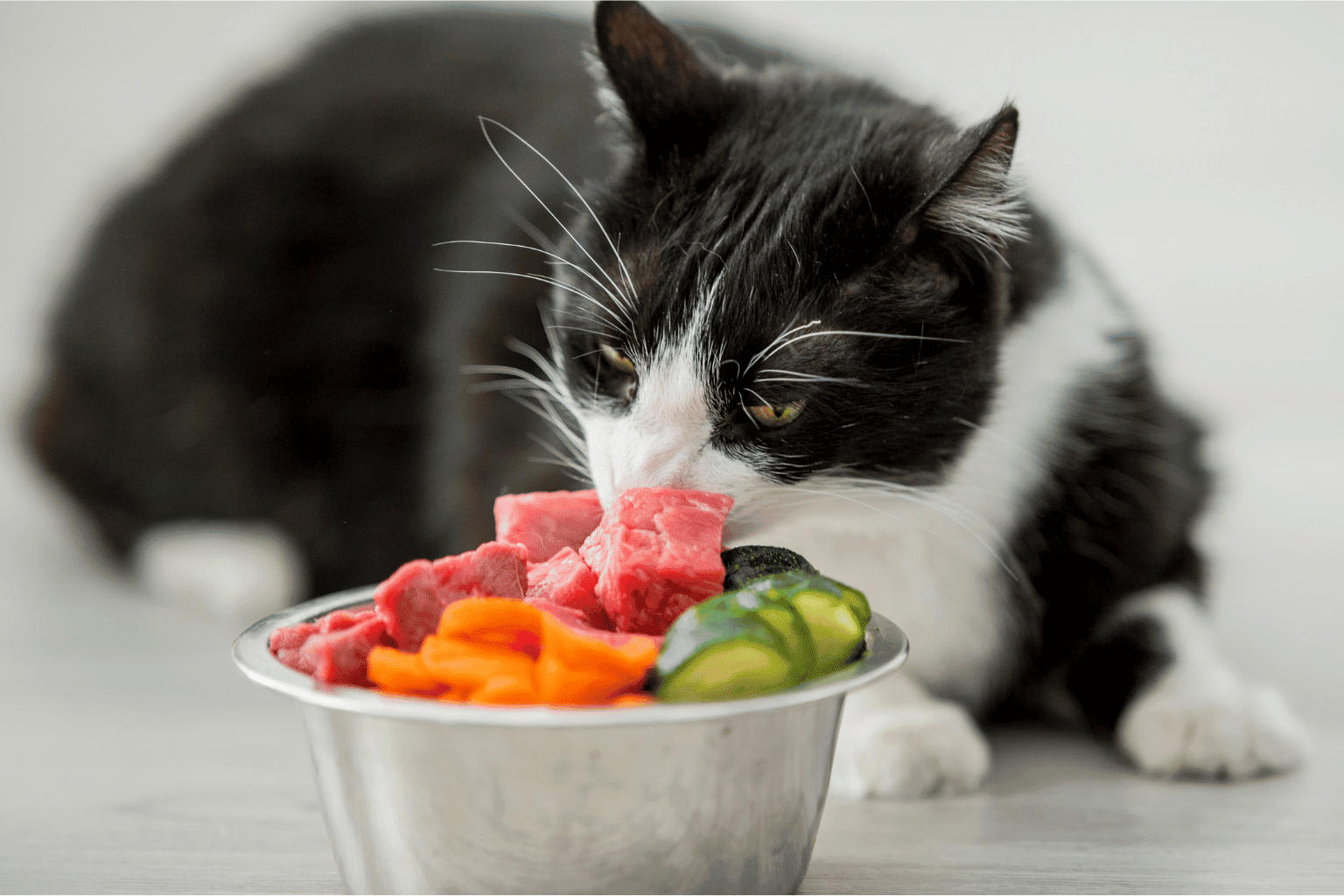Key Takeaways
- Natural wellness approaches can provide comfort for senior pets without the side effects of prescription medications.
- Observing changes in an aging pet's behavior can help identify their needs for improved care.
- Many pet owners seek gentle alternatives to traditional medications for their older animals.
- Senior cats deserve specialized care that prioritizes their comfort and well-being.
Table of Contents
- When Is a Cat "Old"?, Understanding Senior Cat Milestones
- Biological Changes in Old Cats, What's Normal, What's Not?
- Health Problems in Old Cats, What to Watch For & How to Help
- Nutrition & Supplements, Feeding Your Old Cat for Vitality
- Home Environment, Simple Upgrades for Senior Cat Comfort
- Behavioral Changes, Understanding and Easing Senior Cat Mood Swings
- Grooming Old Cats, Making Self-Care Easier & Stress-Free
- Enrichment & Play, Keeping Senior Cats Engaged and Joyful
- Troubleshooting Common Senior Cat Problems, Actionable Solutions
- Senior Cat Products, Best Beds, Food, Remedies & More for Golden Years
- Embracing the Golden Years, Your Old Cat's Best Life Ahead
Old Cat Care: Natural Wellness for Senior Kitties
When my Border Collie mix Tango hit his golden years, I watched him slow down and wondered if there was more I could do beyond prescription medications that left him drowsy and uncomfortable. That same gentle approach I discovered for Tango has helped thousands of old cat parents worldwide, because our senior felines deserve comfort, not side effects.
Your aging kitty isn't "just getting old", they're entering a beautiful phase where the right natural support can mean more purrs, playful moments, and precious time together. Whether your cat is 10 or 17, understanding their changing needs helps you provide exactly what they need to thrive. natural support can be especially important for joint comfort and mobility in senior cats.
At BestLife4Pets, we've seen cats like 14-year-old Whiskers rediscover their zest for morning bird-watching sessions, and 16-year-old Luna finally sleep peacefully through the night. Let's explore how to nurture your senior cat with the same gentle, effective approach that's brought comfort to families across the globe. If your cat struggles with stress or immune challenges, consider our Cat Anxiety & Stress Relief Bundle for comprehensive support.
When Is a Cat "Old"?, Understanding Senior Cat Milestones
Most cats enter their senior years around age 10-11, though this varies by breed and lifestyle. Indoor cats typically live 13-17 years, while outdoor cats average 2-5 years due to environmental risks.
Cat Age Equivalents
- Mature (7-10 years): 44-56 human years
- Senior (11-14 years): 60-72 human years
- Geriatric (15+ years): 76+ human years
Early signs your cat is aging include longer naps, hesitation before jumping, decreased grooming, and subtle appetite changes. Bailey's mom first noticed her missing her favorite morning bird-watching spot, a gentle signal that her joints needed extra support. For more details on what to look for, read about cat arthritis signs, symptoms, and causes.
Recognizing these milestones early allows you to provide proactive care that maintains quality of life. Large breeds like Maine Coons may show aging signs earlier, while smaller cats often remain spry well into their teens.
Biological Changes in Old Cats, What's Normal, What's Not?

Your senior cat's body undergoes predictable changes that affect mobility, senses, and behavior. Understanding these helps distinguish normal aging from health concerns requiring veterinary attention.
Normal physical changes include muscle mass reduction, joint stiffness, dental wear, and gradual vision or hearing decline. Behaviorally, expect increased vocalization, preference for warm spots, and more selective social interaction.
Normal Aging Signs
- Sleeping 16-20 hours daily
- Slower, more deliberate movements
- Increased water consumption
- Occasional confusion or disorientation
Concerning Red Flags
- Sudden weight loss or gain
- Complete loss of appetite
- Difficulty breathing
- Severe behavioral changes
Cellular changes reduce immune function and slow healing, making preventive care crucial. Cleo's sudden nighttime yowling helped her family identify hyperthyroidism early, a common condition in cats over 12 that responds well to proper treatment.
Health Problems in Old Cats, What to Watch For & How to Help
Senior cats commonly develop arthritis (affecting 90% of cats over 12), kidney disease, hyperthyroidism, dental disease, and diabetes. Each condition has distinct warning signs that observant pet parents can catch early. For a broader overview, see our guide on aging cat common health issues.
Arthritis symptoms include reluctance to jump, stiffness after rest, and avoiding stairs. Kidney disease presents as increased thirst, frequent urination, and weight loss. Hyperthyroidism causes restlessness, increased appetite with weight loss, and excessive vocalization.
Monitor your old cat with weekly weigh-ins, tracking water bowl refills, and noting litter box changes. Schedule veterinary checkups every six months for cats over 10, early detection dramatically improves treatment outcomes. If you notice dental issues, our Cat Dental Care & Bad Breath Remedy can help support oral health in senior cats.
Shadow's family noticed his hesitation before jumping onto his favorite windowsill. After starting our gentle joint support pellets, he was making confident leaps within three weeks, proving that natural support can restore comfort and mobility.
Nutrition & Supplements, Feeding Your Old Cat for Vitality
Senior cats need fewer calories but higher-quality protein to maintain muscle mass. Their metabolism slows by 20-30%, yet protein requirements actually increase to prevent muscle wasting common in aging cats. For more on nutrition, see this resource on feeding mature, senior, and geriatric cats.
Enhance appetite by warming food to release aromas, using shallow bowls to prevent whisker fatigue, and maintaining consistent meal times. Many senior cats prefer smaller, more frequent meals rather than large portions.
BestLife4Pets remedies provide gentle support for joints, kidneys, heart, and thyroid function without the side effects of harsh medications. Our tasteless pellets dissolve easily in food or can be given directly, perfect for finicky eaters or stressed cats.
Piper's mom saw remarkable improvement in her 13-year-old's mobility after just two weeks with our joint support formula. The gentle pellets blend seamlessly into daily routines, supporting joint comfort and overall vitality naturally.
Home Environment, Simple Upgrades for Senior Cat Comfort

Your old cat deserves a home that works with their changing needs, not against them. Small adjustments can dramatically improve daily comfort and mobility for aging felines.
Essential accessibility upgrades start with litter boxes, choose low-entry models with wider pans for easier navigation. Elevate food and water dishes to chest height, reducing neck strain during meals. Place cozy beds near favorite sunny spots or warm radiators, creating multiple rest options throughout your home. For more tips, check out our article on cat litter box 101.
Top 5 Home Fixes for Old Cats
- Non-slip mats near food stations and litter areas
- Pet steps or ramps to favorite perches
- Night lights for easier navigation
- Extra litter boxes on each floor
- Orthopedic beds in quiet, draft-free corners
Bobby's arthritis made jumping onto his favorite windowsill impossible, until his family added a simple two-step ramp. Now he spends hours bird-watching again, proving that small changes create big joy for senior cats.
Behavioral Changes, Understanding and Easing Senior Cat Mood Swings
Personality shifts in aging cats often signal physical discomfort or cognitive changes rather than simple "grumpiness." Recognizing these patterns helps you respond with appropriate support.
Common behavioral changes include increased vocalization (especially at night), withdrawal from family activities, confusion about familiar routines, or sudden clinginess. Nina's family noticed her following them room-to-room after years of independence, her way of seeking comfort during vision changes.
Create predictable routines and quiet safe spaces where your senior cat can retreat when overwhelmed. Gentle engagement through soft talking, slow movements, and consistent meal times helps reduce anxiety. For nighttime wandering or excessive vocalization, consider dim lighting pathways and additional litter boxes to ease navigation confusion.
When mood changes persist or worsen, consult your veterinarian to rule out pain or medical conditions. Natural remedies can support emotional balance while addressing underlying discomfort that may be driving behavioral shifts. For cats experiencing ongoing stress, our Pet Relax Cat Calming Anxiety Relief offers gentle support for emotional well-being.
Grooming Old Cats, Making Self-Care Easier & Stress-Free
Arthritis and reduced flexibility make self-grooming challenging for older cats, leading to matted fur, overgrown claws, and skin issues. Your gentle assistance becomes essential for maintaining comfort and health.
Weekly grooming sessions work best when kept short and positive. Use soft-bristle brushes to prevent skin irritation, and trim nails monthly with easy-grip clippers designed for seniors. Warm the room beforehand, older cats feel cold more intensely and relax better in cozy environments.
| Grooming Need | Frequency | Warning Signs |
|---|---|---|
| Brushing | 2-3 times weekly | Mats, dull coat, debris |
| Nail trimming | Monthly | Catching on fabric, overgrowth |
| Dental care | Daily (if tolerated) | Bad breath, reluctance to eat |
Cody's family discovered that brushing right after breakfast became their favorite bonding time, he associates the routine with positive feelings and stays relaxed throughout the process.
Enrichment & Play, Keeping Senior Cats Engaged and Joyful

Mental stimulation remains crucial for aging cats, though play styles must adapt to reduced energy and mobility. Focus on gentle, engaging activities that spark curiosity without causing exhaustion.
Ideal senior cat toys include slow-moving feather wands, scent-based puzzle feeders, and soft balls that don't require intense chasing. Interactive feeding toys encourage natural hunting instincts while slowing eating pace, beneficial for digestion and weight management.
Keep play sessions short, 5 to 10 minutes of gentle interaction daily maintains muscle tone and cognitive function. Mr. Whiskers rediscovered his playful side with catnip-scented fabric mice and a heated window perch for comfortable observation time.
Supervised outdoor experiences in secure enclosures or harness walks provide sensory enrichment without safety risks. Even indoor cats benefit from opened windows with secure screens, bringing fresh scents and sounds into their environment. For tips on safe outdoor adventures, see our post on cat on leash training.
Troubleshooting Common Senior Cat Problems, Actionable Solutions
Sudden changes in your old cat can feel overwhelming, but most senior issues have straightforward solutions when addressed promptly. Quick recognition and appropriate response make all the difference in maintaining quality of life.
Fast Fixes for Top 5 Old Cat Issues
- Food refusal: Warm meals to enhance aroma, try different textures
- Litter box avoidance: Add boxes on each floor, ensure easy access
- Excessive hiding: Check for pain signs, create multiple safe spaces
- Night vocalization: Provide dim lighting, rule out cognitive changes
- Overgrown claws: Schedule monthly trims, watch for ingrown nails
Weight loss exceeding 10% requires immediate veterinary attention, as does any sudden behavioral change lasting more than 48 hours. However, gradual appetite changes often respond well to meal warming, elevated feeding stations, and gentle encouragement.
Our natural remedies support multiple senior challenges simultaneously, joint comfort, urinary health, and overall vitality work together to address the interconnected nature of aging cat wellness. If your cat needs comprehensive support for joint and hip issues, try our Cat Hip and Joint Pain Relief for joint discomfort and mobility support.
Senior Cat Products, Best Beds, Food, Remedies & More for Golden Years
Choosing products specifically designed for aging cats dramatically improves daily comfort and long-term health outcomes. Focus on accessibility, gentle ingredients, and proven effectiveness rather than flashy marketing claims.
Essential senior cat products include orthopedic beds with memory foam support, low-entry litter boxes with high backs, elevated feeding stations, and soft-bristle grooming tools. Senior-formulated foods provide appropriate protein levels while supporting kidney and heart health through controlled phosphorus and sodium.
| Product Category | Key Features | Why It Matters |
|---|---|---|
| Orthopedic beds | Memory foam, washable covers | Joint pressure relief, hygiene |
| Senior cat food | Higher protein, controlled minerals | Muscle maintenance, organ support |
| Natural remedies | Gentle pellets, multiple benefits | Holistic wellness, easy dosing |
BestLife4Pets remedies excel because they address multiple age-related challenges through single formulations. Marley's family noticed improved mobility and appetite within weeks of starting our joint support pellets, exactly the comprehensive approach senior cats need. For cats with urinary or kidney concerns, our Cat UTI, Kidney & Bladder Support offers targeted support for bladder and kidney health.
Our curated collection eliminates guesswork, offering only products that meet strict safety and effectiveness standards for aging felines. Join our community for exclusive senior cat care tips and product recommendations tailored to your specific situation. For a full range of solutions, browse our Natural Cat Supplements for Treating Common Health Issues in Cats and Kittens.
Embracing the Golden Years, Your Old Cat's Best Life Ahead

Caring for an old cat means celebrating wisdom while supporting changing needs with patience and understanding. Every gray whisker and slower step represents years of companionship that deserve our most thoughtful care.
The path forward combines proactive veterinary care, environmental adaptations, and gentle natural support that honors your cat's dignity throughout their senior years. Small daily choices, warmed meals, comfortable beds, regular grooming assistance, create profound impacts on quality of life.
Remember that aging isn't a disease requiring aggressive intervention, but a natural process deserving compassionate support. Our gentle pellet remedies work alongside your loving care to maintain comfort, mobility, and joy during these precious golden years. For more information on nutrition and weight management in senior cats, see the AAHA/AAFP Feline Life Stage Guidelines.
Your senior cat has given you years of love, now it's time to give back with the nurturing, natural wellness they deserve. Every moment of comfort you provide honors the bond you've built together.
Disclaimer: This information is not a substitute for professional veterinary advice. Always consult with your veterinarian for proper diagnosis and treatment of health conditions.
Frequently Asked Questions
At what age is a cat generally considered to be a senior, and how do aging milestones vary by breed or lifestyle?
Cats are generally considered senior around 10 to 11 years old, though this can vary depending on breed and lifestyle. Indoor cats often live longer, reaching 13 to 17 years, while outdoor cats face more risks and typically have shorter lifespans. Understanding these milestones helps tailor care to your cat’s unique needs as they age.
What are the common biological and behavioral changes in senior cats, and how can I tell which signs are normal versus those needing veterinary care?
Senior cats may show slower movement, changes in appetite, or altered sleep patterns, which are often normal signs of aging. However, sudden weight loss, persistent lethargy, or changes in litter box habits should prompt a vet visit. Observing your cat closely helps distinguish typical aging from issues needing professional attention.
What natural wellness approaches and supplements can help improve joint comfort and overall vitality in aging cats?
Natural wellness for senior cats includes gentle joint-support supplements that help maintain mobility without harsh side effects. Supporting your cat’s vitality with balanced nutrition and remedies that encourage the body’s own healing can make a real difference in comfort and energy levels. Always choose products designed specifically for cats and consult your vet when adding new supplements.
How can I modify my home environment and grooming routine to better support the comfort and well-being of my senior cat?
Creating a warm, quiet space with easy access to favorite spots helps senior cats feel safe and comfortable. Using gentle grooming tools and assisting with brushing can ease self-care when mobility declines. Small changes like soft bedding and low-sided litter boxes also support your cat’s comfort and independence as they age.



